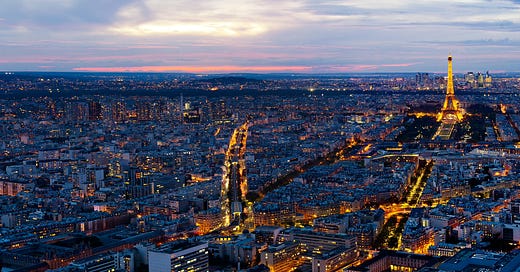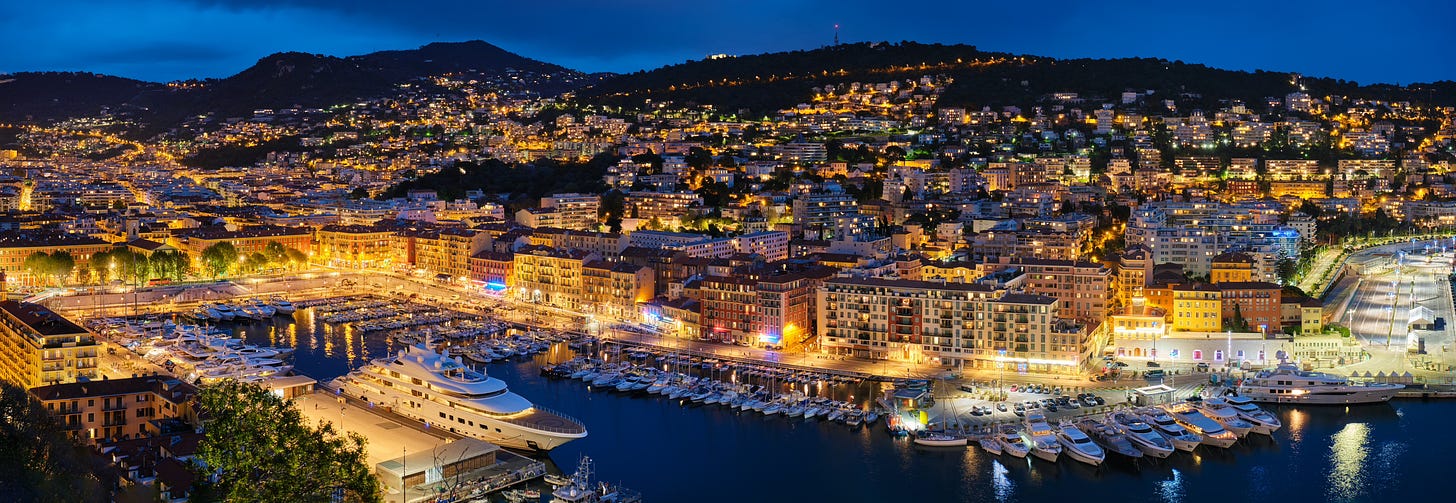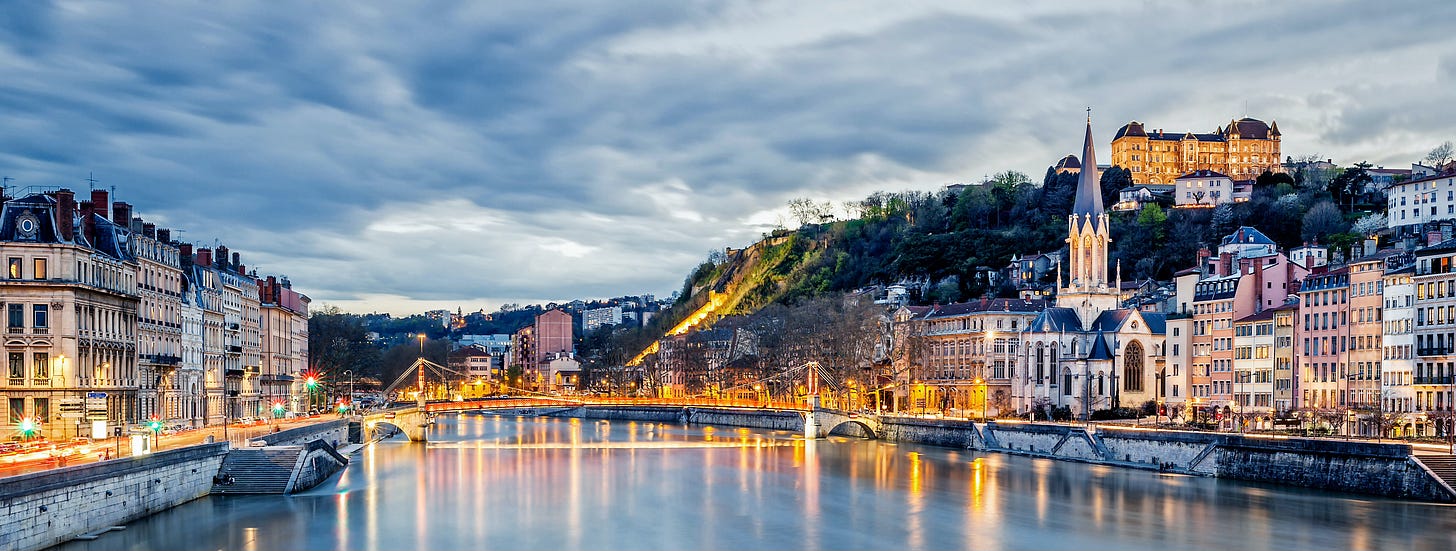Finding Expatriate Harmony Abroad Part 2: France with Paris as Your Portal
Jazz Festivals on the horizon, and what we're reading
As political polarization and societal divisions continue to permeate American life, an increasing number of individuals are turning their gaze toward the beauty and charm of other countries. Renowned for its rich history, cultural treasures, and cosmopolitan allure, France offers a compelling sanctuary for those seeking respite from the tumult of their homeland. In Part 2 of our series, we delve into the myriad reasons why U.S. residents may find France, particularly Paris, an enticing destination for their pursuit of a more harmonious and fulfilling life.
Culturally Cool:
France stands as a bastion of artistic and cultural brilliance, boasting world-class museums, iconic landmarks, and a vibrant arts scene. Paris, the epitome of sophistication, is home to treasures such as the Louvre, Notre Dame Cathedral, and the Eiffel Tower, offering residents an unparalleled immersion into the world of art, history, and architecture.
Culinary Excellence:
French cuisine is celebrated globally for its exquisite flavors and culinary finesse. From decadent pastries to sumptuous cheeses and fine wines, France tantalizes the taste buds at every turn. Paris, in particular, is a paradise, with its array of Michelin-starred restaurants, bustling markets, and charming cafes, ensuring that every meal is a memorable experience.
Quality of Life and Work-Life Balance:
France places a strong emphasis on quality of life, with generous vacation allowances, healthcare coverage, and social welfare programs. The French value leisure time and prioritize a healthy work-life balance, allowing residents to savor life's pleasures without sacrificing professional success.
Historic Grandeur and Architectural Splendor:
Paris is a city imbued with history and architectural grandeur, where every street corner tells a story. From the medieval marvels of the Marais district to the Haussmannian boulevards adorned with elegant facades, Paris exudes an unparalleled sense of charm and sophistication, captivating residents and visitors alike.
Transportation and Infrastructure:
France boasts a well-developed transportation network, with efficient public transit systems connecting cities and regions across the country. Paris, in particular, benefits from an extensive metro network, making it easy for residents to navigate the city with ease. Additionally, France's high-speed rail network provides swift and convenient travel options for exploring the country's diverse landscapes.
Cultural Diversity and International Community:
France is home to a vibrant multicultural community, welcoming individuals from around the world. Paris, as a global city, embraces diversity and fosters an inclusive atmosphere, offering residents the opportunity to engage with a myriad of cultures, languages, and perspectives.
Disadvantages:
Cost of Living:
While France offers an unparalleled quality of life, it also comes with a relatively high cost of living, particularly in major cities like Paris. Housing, dining, and entertainment expenses can be significant, requiring careful budgeting and financial planning.
Bureaucratic Challenges:
Navigating French bureaucracy can be daunting for expatriates, especially when dealing with visa applications, residency permits, and other administrative processes. Patience and perseverance are essential when navigating these bureaucratic hurdles.
Language Barrier:
While English is widely spoken in urban areas, particularly among the younger population and in professional settings, proficiency in French can greatly enhance one's integration and experience in France. Expatriates may encounter challenges in certain situations, particularly outside of major cities.
Cultural Adjustment:
Adapting to French customs, social norms, and cultural nuances can be a gradual process for expatriates. Building connections within the community and immersing oneself in French culture can facilitate this adjustment period, but it may require time and effort.
France is home to a multitude of cities, each offering its own unique blend of charm, history, and lifestyle. Here are four other cities, including Nice, that U.S. residents might consider:
Nice: The Jewel of the French Riviera
Situated on the picturesque French Riviera, Nice is renowned for its stunning coastline, Mediterranean climate, and vibrant cultural scene. The city boasts beautiful beaches, charming Old Town streets, and a rich history dating back to ancient times. With its bustling markets, lively festivals, and renowned museums like the Musée Matisse, Nice offers residents a perfect balance of relaxation and cultural exploration.
Advantages: Mediterranean climate, stunning beaches, vibrant cultural scene, and proximity to other Riviera destinations.
Disadvantages: High cost of living, particularly in coastal areas, and crowded tourist seasons.
Lyon: The Gastronomic Capital
Nestled in the heart of the Rhône-Alpes region, Lyon is a city revered for its culinary prowess, historic architecture, and UNESCO-listed Old Town. Known as the gastronomic capital of France, Lyon boasts a wealth of Michelin-starred restaurants, traditional bouchons, and vibrant food markets. The city also offers a thriving cultural scene, with theaters, museums, and music festivals catering to diverse tastes.
Advantages: Culinary excellence, UNESCO World Heritage sites, vibrant cultural scene, and strategic location between Paris and the French Alps.
Disadvantages: Limited English proficiency compared to larger cities, and occasional pollution from industrial activities.
Toulouse: The Pink City
Toulouse, often called the Pink City due to its distinctive pink-hued buildings, is located in southwestern France. The city is renowned for its aerospace industry, as well as its rich history, art galleries, and vibrant nightlife. Toulouse offers residents a relaxed pace of life, with ample green spaces, picturesque canals, and a burgeoning tech scene.
Advantages: Aerospace industry opportunities, vibrant cultural scene, relaxed lifestyle, and proximity to the Pyrenees mountains.
Disadvantages: Limited job market outside of aerospace, occasional summer heat waves, and fewer international amenities compared to larger cities.
4. Bordeaux: The Wine Capital
Bordeaux, situated in the heart of the renowned wine-producing region, is celebrated for its historic architecture, world-class vineyards, and vibrant riverfront. The city boasts elegant boulevards lined with 18th-century buildings, UNESCO-listed landmarks like the Place de la Bourse, and a thriving wine culture. Bordeaux offers residents a high quality of life, with excellent public transportation, cultural attractions, and access to some of the world's finest wines.
Advantages: World-renowned wine region, elegant architecture, high quality of life, and vibrant cultural scene.
Disadvantages: Relatively high cost of living, particularly in central areas, and occasional traffic congestion.
Each of these cities offers its distinct allure, from the sun-kissed beaches of Nice to the culinary delights of Lyon, the aerospace opportunities of Toulouse, and the wine culture of Bordeaux. Exploring these diverse destinations allows U.S. residents to discover the richness and diversity that France has to offer, ensuring a rewarding and fulfilling experience for those seeking a new home abroad.
Marseille, the vibrant port city in southern France, is another fantastic option for U.S. residents seeking to live abroad. Here's a detailed overview:
Marseille: The Mediterranean Melting Pot
Marseille, France's second-largest city, is a dynamic and culturally rich metropolis located on the Mediterranean coast. Known for its bustling port, historic landmarks, and diverse population, Marseille offers residents a unique blend of Old World charm and modern vitality.
Advantages: The Mediterranean climate, with mild winters and hot summers, a rich history dating back over 2,600 years, with landmarks such as the Old Port (Vieux-Port), the historic Panier district, and the iconic Notre-Dame de la Garde basilica, and Marseille benefits from its proximity to other economic hubs in southern France.
Disadvantages: Urban challenges such as traffic congestion, pollution, socioeconomic disparities, language barriers resulting from diversity, competitive housing market, and adjusting to life in the local community and culture.
France, with Paris as its glittering jewel, offers a sanctuary for Americans weary of political polarization and seeking refuge in the embrace of beauty, culture, and joie de vivre. From the grandeur of its historic landmarks to the culinary delights that tantalize the senses, France captivates the imagination and beckons residents to embark on a journey of discovery and fulfillment. While challenges may arise, the rewards of embracing life in France are boundless, promising a tapestry of experiences and memories that will enrich the lives of those who dare to make it their home.
Jazz Festival Season is here and it’s time to start making plans to attend some of the more popular events that are on the horizon. For a look at some of the upcoming events, visit Fit2Journey.com for locations, dates, and links for information. We also throw in a couple of book festivals as well.

Strokes are one of the leading causes of death for people in the US and 80% of stroke victims are asymptomatic leading up to the stroke. Our screenings can detect a person’s risk so they can take action to prevent a serious, or fatal, health crisis! Why wait? Life Line Screening
From the Fit2Journey Reading Corner
20 Cheapest Places to Travel Around the World in 2024
10 Best Hotels in Washington, D.C.
United CEO Scott Kirby is seeking to reassure customers following several recent incidents.
Say Goodbye to Snooze Buttons: 12 Strategies to Wake Up Easier
Health After 50: A Doctor's Take on Aging and Staying Healthy












